Filter by
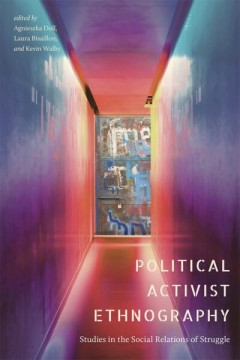
Political Activist Ethnography Studies in the Social Relations of Struggle
Featuring research from Aotearoa (New Zealand), Bangladesh, Canada, Poland, South Africa, and the United States on matters as diverse as anti-poverty organizing, prisoners’ re-entry, anti-fracking campaigns, left-inspired think-tank development, non-governmental partnerships, involuntary psychiatric admission, and perils of immigration medical examination, contributors to this volume adopt a …
- Edition
- -
- ISBN/ISSN
- 9781771993999
- Collation
- -
- Series Title
- -
- Call Number
- 6 x 9, 304 pages
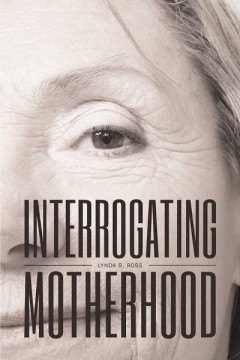
Interrogating Motherhood
Ross explores the topic of mothering from the perspective of Western society and encourages students and readers to identify and critique the historical, social, and political contexts in which mothers are understood. By examining popular culture, employment, public policy, poverty, “other” mothers, and mental health, Interrogating Motherhood describes the fluid and shifting nature of the p…
- Edition
- -
- ISBN/ISSN
- 9781771991438.01
- Collation
- -
- Series Title
- OPEL (Open Paths to Enriched Learning)
- Call Number
- 173 pages
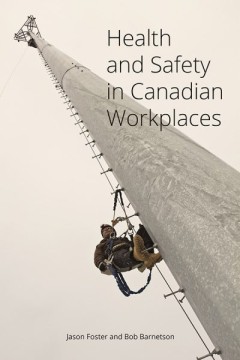
Health and Safety in Canadian Workplaces
Although they address the gendered and racialized dimensions of new work processes and structures in contemporary workplaces, Foster and Barnetson contend that the practice of occupational health and safety can only be understood if we acknowledge that workers and employers have conflicting interests. Who identifies what workplace hazards should be controlled is therefore a product of the broad…
- Edition
- -
- ISBN/ISSN
- 9781771991834.01
- Collation
- -
- Series Title
- OPEL (Open Paths to Enriched Learning)
- Call Number
- -
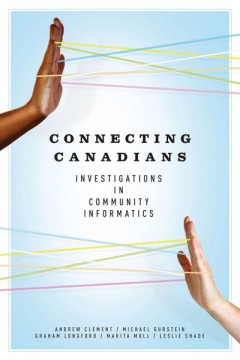
Connecting Canadians Investigations in Community Informatics
Funded for four years by the SSHRC’s Initiative for the New Economy, CRACIN systematically studied a wide variety of Canadian community ICT initiatives, bringing perspectives from sociology, computer science, critical theory, women’s studies, library and information sciences, and management studies to bear on networking technologies. A comprehensive thematic account of this in-depth researc…
- Edition
- -
- ISBN/ISSN
- 978-1-926836-04-1
- Collation
- -
- Series Title
- -
- Call Number
- 518 pages
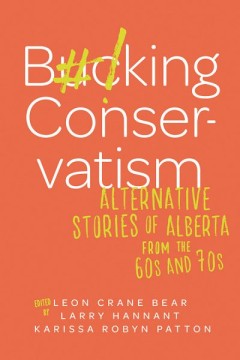
Bucking Conservatism Alternative Stories of Alberta from the 1960s and 1970s
With lively, informative contributions by both scholars and activists, Bucking Conservatism highlights the individuals and groups who challenged Alberta’s conservative status quo in the 1960s and 70s. Drawing on archival records, newspaper articles, police reports, and interviews, the contributors examine Alberta’s history through the eyes of Indigenous activists protesting discriminatory l…
- Edition
- -
- ISBN/ISSN
- 9781771992572.01
- Collation
- -
- Series Title
- -
- Call Number
- 368 pages
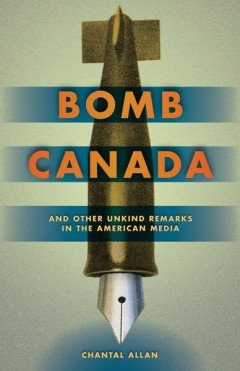
Bomb Canada and Other Unkind Remarks in the American Media
Canada and the United States. Two nations, one border, same continent. Anti-American sentiment in Canada is well documented, but what have Americans had to say about their northern neighbour? Allan examines how the American media has portrayed Canada, from Confederation to Obama’s election. By examining major events that have tested bilateral relations, Bomb Canada tracks the history of anti-…
- Edition
- -
- ISBN/ISSN
- 9781897425497.01
- Collation
- -
- Series Title
- Global Peace Studies
- Call Number
- -
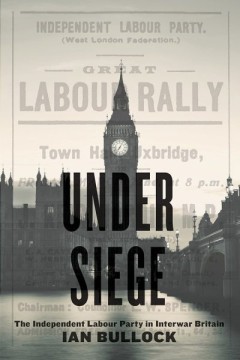
Under Siege The Independent Labour Party in Interwar Britain
Despite this reversal of fortunes, during the 1930s—years that witnessed the ascendancy of both Stalin and Hitler—the ILP demonstrated an unswerving commitment to democratic socialist thinking. Drawing extensively on the ILP’s Labour Leader and other contemporary left-wing newspapers, as well as on ILP publications and internal party documents, Bullock examines the debates and ideological…
- Edition
- -
- ISBN/ISSN
- 9781771991551.01
- Collation
- -
- Series Title
- -
- Call Number
- -
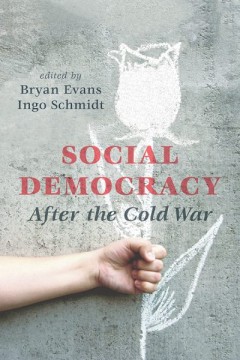
Social Democracy After the Cold War
Offering a comparative look at social democratic experience since the Cold War, the volume examines countries where social democracy has long been an influential political force—Sweden, Germany, Britain, and Australia—while also considering the history of Canada’s NDP and the emergence of New Left parties in Germany and the province of Québec. The case studies point to a social democracy…
- Edition
- -
- ISBN/ISSN
- 978-1-926836-87-4
- Collation
- -
- Series Title
- -
- Call Number
- 340 pages
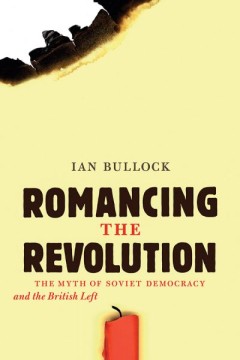
Romancing the Revolution The Myth of Soviet Democracy and the British Left
Romancing the Revolution uncovers the imprint of this myth on left-wing organizations and their publications, ranging from those that presented themselves as “British Bolsheviks”—the British Socialist party and The Call, the Socialist Labour party’s The Socialist, Sylvia Pankhurst’s Workers’ Dreadnought—to the much more equivocal Labour Leader and The New Statesmen.
- Edition
- -
- ISBN/ISSN
- 9781926836133
- Collation
- -
- Series Title
- -
- Call Number
- 438 pages

Romancing the Revolution The Myth of Soviet Democracy and the British Left
Romancing the Revolution uncovers the imprint of this myth on left-wing organizations and their publications, ranging from those that presented themselves as “British Bolsheviks”—the British Socialist party and The Call, the Socialist Labour party’s The Socialist, Sylvia Pankhurst’s Workers’ Dreadnought—to the much more equivocal Labour Leader and The New Statesmen.
- Edition
- -
- ISBN/ISSN
- 978-1-926836-13-3
- Collation
- -
- Series Title
- -
- Call Number
- -
 Computer Science, Information & General Works
Computer Science, Information & General Works  Philosophy & Psychology
Philosophy & Psychology  Religion
Religion  Social Sciences
Social Sciences  Language
Language  Pure Science
Pure Science  Applied Sciences
Applied Sciences  Art & Recreation
Art & Recreation  Literature
Literature  History & Geography
History & Geography